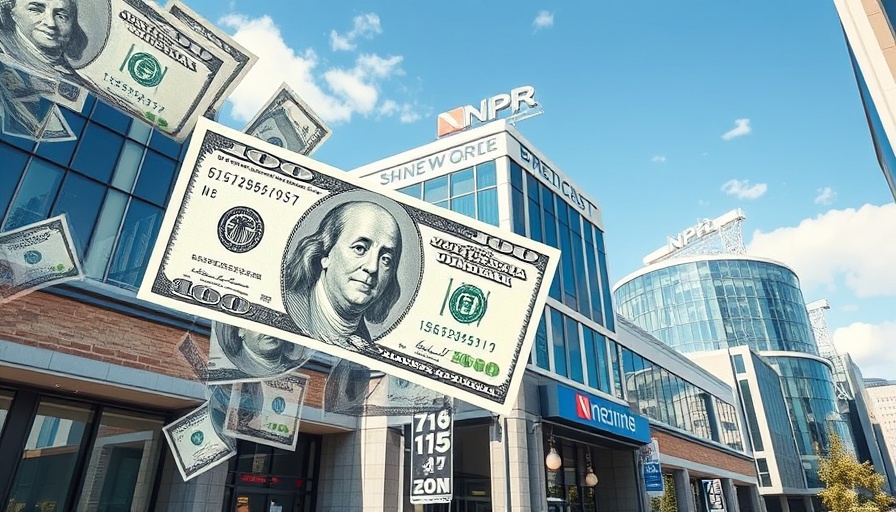
Impact of Federal Funding on NPR’s Operations
NPR, the public radio network that has significantly shaped news broadcasting in America, has urged its local stations to actively lobby Congress as the Trump administration seeks to withdraw federal funding. This call to action comes at a critical juncture where the financial stability of public media is being threatened not just by policy changes but also by evolving media consumption habits.
The Growing Need for Public Support
With federal funding becoming increasingly precarious, NPR encourages its stations to foster direct communication with local representatives. This grassroots effort aims to emphasize the essential role public radio plays in providing unbiased news coverage and cultural programming that many communities rely on. Engaging local listeners and stakeholders is crucial for creating a compelling narrative about why public funding for NPR is vital, not just for the stations but also for the integrity of democracy.
Contextualizing NPR’s Situation
The landscape of public broadcasting has been shifting dramatically. According to reports, the Trump administration’s proposed budget cuts pose significant risks to the National Public Radio system, which traditionally depends on federal funding for a portion of its budget. Unlike commercial stations that generate revenue through advertising, NPR relies on a mix of federal support, listener donations, and corporate sponsorships. Losing federal funding could lead to cuts in programming and staffing, a scenario that could drastically alter the media landscape landscape.
A Historical Perspective on Public Funding for Media
Historically, public media in the United States has been a bastion of diverse viewpoints, thanks to federal support established in the 1960s. The Corporation for Public Broadcasting (CPB) was created to provide financial backing to local public television and radio stations. As media consumption shifts to digital platforms, the demand for high-quality public service journalism only grows stronger, showcasing the need for sustained or even increased public funding.
The Emotional Connection of Local Communities
For many, local NPR stations are not just providers of news; they are woven into the fabric of their communities. They gather local voices, amplify important issues, and even sustain local arts and culturally relevant discussions. As interruptions in federal funding loom, the stakes become not just financial but personal. Listener outreach efforts can create a sense of urgency and encourage community members to express their support to Congress, reinforcing the message that public radio is an essential service.
Possible Future Outcomes and Community Action
Whether federal funding will ultimately be preserved is still in question. However, the proactive steps NPR is taking are vital in shaping the outcome. Local stations can leverage community events, social media campaigns, and public forums to rally support and convey the significance of NPR’s work. Engaging the audience in advocacy efforts amplifies grassroots voices and can sway congressional members who may feel disconnected from their constituents' sentiments regarding public media funding.
Encouraging Support for Public Radio
As these pivotal discussions unfold, it is crucial that listeners stay informed and engaged. The narratives established through community connection can influence political decision-making. By understanding the role and importance of public radio, communities can unite to advocate for their continued existence—whether through direct lobbying or simply tuning in to support local voices.
Given these insights, it’s clear that the fight for public funding of NPR is not just about media—it’s about preserving a platform committed to delivering diverse and inclusive narratives that resonate with Americans from all walks of life.
If you value public media and its role in your community, consider contacting your local representative to express your support for NPR. It’s your voice that can make a difference.
 Add Element
Add Element  Add Row
Add Row 



Write A Comment